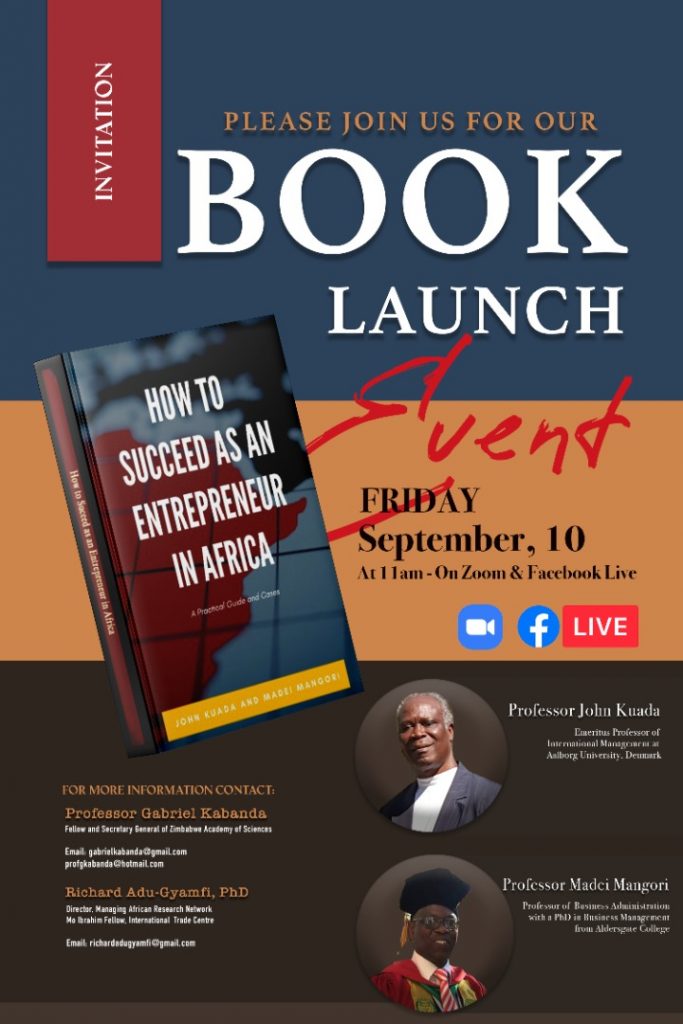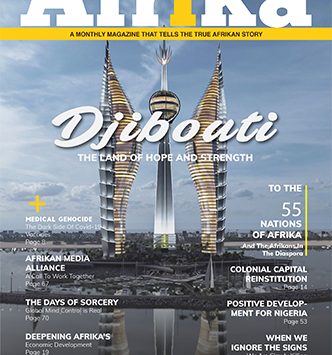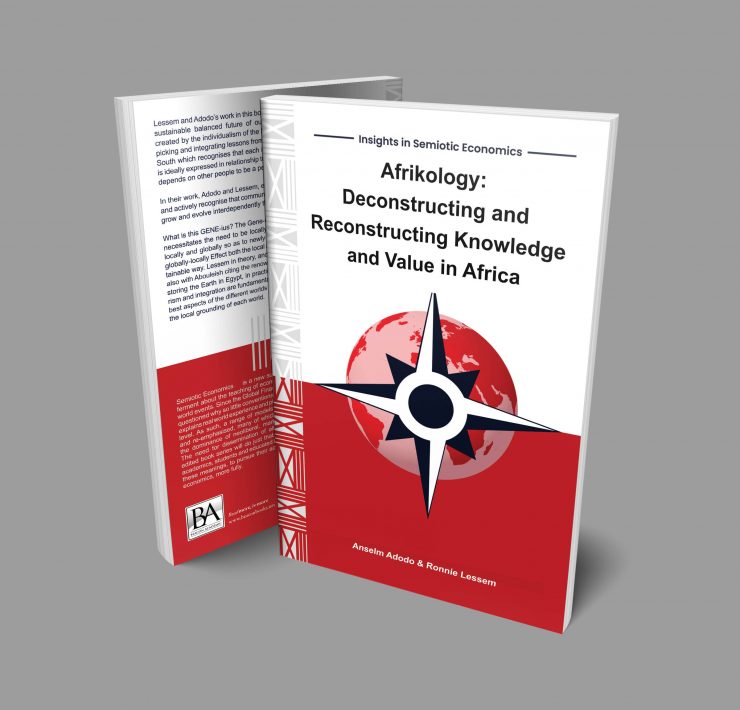
John Kuada is Emeritus Professor of International Management at Aalborg…
Madei Mangori has over 36 years of experience as an…
Read Next
Most economists agree that if current and prospective entrepreneurs in Africa gain insight into how the exceptionally performing African business owners manage their businesses, they will greatly enhance their own chances of being successful.
With this understanding, we interviewed a selected number of highly successful entrepreneurs in Botswana, Ghana and Zimbabwe, encouraging each of them to tell “their stories’’ of how they have built their businesses, and to describe their learning experiences in the process. We have presented results of our conversations with them in a book entitled How to succeed as an Entrepreneur in Africa – A Practical Guide and Cases (London: Adonis & Abbey Publishing Ltd, 2021). The following seven guidelines summarize the collective wisdom that the entrepreneurs have shared with us:
- African entrepreneurs must have a higher vision and goal for their businesses. That is they must make profits for a purpose – e.g. help to lift others in their communities out of poverty.
- They must be growth-oriented – i.e. do not be satisfied with barely making a living
- They must make efficient and effective use of your resources
- They must find trustworthy business partners
- They must engage in fast and lifetime learning and motivate their workers to do the same
- They must improve the management of their finances
- They must mindful of possible predatory influences of the extended family members
We provide a plain language explanation of the seven guidelines in this article.
Making Profits for a Purpose
One of the dominant characteristics of all the business owners we interviewed is their unyielding optimism. They believe that the African business environment provides many opportunities, but also challenges. To them, success depends on the ability to see the opportunities and the courage to face the challenges within the operational environment. Remarkably, they do not base their entrepreneurial intentions on pure economistic self-interest – i.e. making a lot of money for the sake of being rich. Rather, they are guided by a self-transcendence motive that enjoins them to make profits for a purpose. They see their business goals as linked to a desire to create value and make life meaningful for themselves and other Africans. With such a focus, they are able to develop an inner motivation and tenacity to weather the storms of building viable businesses and designing winning strategies.
Being growth and action-oriented
They describe themselves more as “doers” rather than “dreamers”. They are action-oriented people; they want to start producing results immediately. The number or severity of the problems they encounter do not intimidate them. In fact, their self-confidence and general optimism seem to translate into a view that nothing is impossible in business – goals may sometimes just take a little longer to achieve. They tend to work with a stubborn tenacity to solve difficult problems. Unlike most people, these entrepreneurs do not allow themselves to be concerned with failure. They do not think so much about what they are going to do if they do not make it. They rather focus their thoughts and energy on what they have to do to succeed.
At the same time, they are realistic and grounded in their family values. They informed us about how important it is for them to assess their personal capabilities before plunging into business. They also underscore the importance of making realistic assessments of the demands that the entrepreneurial life will make on their families and the usefulness of cultivating the support of the family in business endeavors. These assessments help entrepreneurs to keep their business perspectives in sharper focus and guide them as to what they need to do from the onset in order to succeed.
Using Resources Efficiently and Effectively
They are aware that they must be both efficient and effective in their business decisions and practices. Efficiency here refers to doing things in a right manner – obtaining maximum output with minimum resources. Effectiveness relates to the vision and mission that entrepreneurs have for their businesses, i.e. what kind of outcome they desire from their business efforts, based on their values and beliefs. This means they must demonstrate excellence in their operational performance as well as strategic management decisions. Their decisions usually result in having operational costs under control. In addition to this, they ensure that their employees are well aware of the tasks they have to perform and are willing to do their utmost to complete the tasks in a timely manner. This means most of their employees show high levels of commitment and morale, and the long-term goals and vision of the businesses become a source of inspiration and energy for their work.
Finding Trustworthy Business Partners
Studies of business relations in many African countries show that it is difficult for African business people to enter into long-term relationships. They also find it difficult to enter into credit arrangements with one another when doing business. People simply do not trust one another. The lack of trust imposes additional costs on businesses, including shortages of critical inputs and non-delivery of goods to customers. African business owners, therefore, generally see the contract enforcement challenges as normal risks of doing business. Research has also demonstrated that, when business owners understand and appreciate one another’s viewpoints, they are able to arrive at working consensus and manage their relationships more effectively. The trust they build reduces the amount of resources that they spend on monitoring activities of one another. This, therefore, reduces the cost of operations and enhances business performance.
The high performing entrepreneurs in our study are keenly aware of this challenge. They have developed the capability of identifying trustworthy partners. In situations where trust seems weak, they have been able to nurture this trust by being more accepting and supportive of their partners, thereby encouraging them to reciprocate their trust. However, they are aware that trust is a risky proposition and, therefore, not appropriate in all situations. Their experiences have taught them that there are times when it is inadvisable to show high levels of openness and share resources or let down one’s guard.
Engaging in Lifetime Learning and Motivating Employees
It is often said that significant challenges or problems in the lives of entrepreneurs trigger transformational or re-generative learning. Successful African entrepreneurs face many challenges and these provide them with useful learning situations, resulting not only in upgrading their managerial skills and capabilities, but in also creating a process of personal transformation. Many of the entrepreneurs we spoke with do attend professional development conferences and seminars/workshops to improve their managerial capabilities and to network with people with similar ambitions. Others read about high profile entrepreneurs in other countries. Through these sources, they are able to learn from the success stories and pitfalls of others.
In addition to their personal development through lifelong learning, the successful entrepreneurs are aware that having a winning strategy also entails managing employees well and choosing appropriate leadership style. To do this effectively, they endeavor to treat employees as if they were their customers. They never use threats when dealing with employees, since this will make them displeased, uncommitted and even turn them against the business. Instead, they make them aware of the negative consequences of not getting the results they want in the company and communicate their expectations to them in positive and inspiring manner. Similarly, they tend to put their customers at the centre of their decisions. They are aware that it is because of customers that their businesses exist. As such, they view and treat their customers as if they were members of a royal family – i.e. as kings, queens, princes and princesses.
Improving the Management of Company Finances
One other major weakness of small businesses in Africa is that their owners appear to lack financial discipline. What makes businesses grow is not how much their owners earn but how much of their earnings they save and plough back into the company. Some of the entrepreneurs have learnt this lesson in a painful manner when financial indiscipline nearly resulted in their bankruptcy. All the entrepreneurs in our study now keep their business accounts separate from their personal accounts. They gave themselves salaries as regular employees in the company, and maintained modest life style while their businesses were growing. This approach has enabled them to get financial support from banks and other financial institutions in order to grow their businesses.
Being mindful of predatory influences of the extended family
While the family remains a key source of resources in Africa, family obligations can be predatory as well. That is, families can act as brakes on the growth of entrepreneurial activities. The superior performance of new entrepreneurs may therefore require shifts in the ordering of family relations during the initial stages of the enterprise. Studies have shown that as a major breadwinner in the extended family, some of entrepreneurs have been under immense and persistent pressure to hire family members even when there are no jobs for them. However, since the family members employed come easily to the jobs and take their job security for granted, they scarcely feel obliged to improve their skills and do a good job. Non-family employees tend to adopt the same attitude as the family members in the business. After all, why should they work harder and go the extra mile if the family members do not do so.
This is again a lesson that some of the entrepreneurs we spoke with have learnt the hard way. They experienced that worker productivity in their businesses went down due to the attitude that family members exhibited and business opportunities went unnoticed because no one, apart from the entrepreneur, was seriously concerned with the survival of the business. One of the entrepreneurs reflected on the predicament this way:
“We African entrepreneurs are in a perpetual debt of gratitude to those family members who have rendered services to us or supported us in one way or the other at any period in our lives. If your parents pay for your education, they expect you to pay for your brothers and sisters. If they give you money to start a business, they expect you to employ the family. The more prosperous the family considers you to be, the higher their expectations and the stronger their disappointment if you decide not to help”.
Another entrepreneur commented on the situation as follows:
“African family members participate with zeal in wealth consumption, but not with the same zeal in wealth creation”
Many of the successful entrepreneurs who faced such situations tended to think out-of-the-box to find solutions to them, sometimes even rejecting the presence of a box. They have been mindful of tension between the need to satisfy the expectations of the extended family and the economic imperatives of running a business. Many of them have demonstrated inner strengths and tact in navigating and negotiating the conflicts they experience in their endeavors. The book provides examples of the approaches they have adopted to address the problem.
Lessons for Small Enterprise Development in Africa
Despite their achievements, several of the entrepreneurs have informed us that entrepreneurial success is not a given, even after many years of education and training. They have learnt of the flimsy line that separates success and failure and have developed an awareness that meticulous planning does not always translate into superior performance. Everyday produces its learning experiences and opportunities for reflection and feeding forward of new knowledge in unfamiliar terrains. As they hit significant milestones in their endeavors, some look back and attribute their success not exclusively to their wisdom and prowess, but partly to some form of divine intervention.
They also spoke of the pervasiveness of what we describe as a mindset of learned helplessness in most African communities – i.e. loss of control over one’s own situation in life. This mindset has meant that many business people accept their non-growth as a normal situation. Their advice is that deliberate campaigns must be mounted in all African communities to encourage our citizens to perceive entrepreneurial activities to be desirable and as a value on its own. That is, the successful entrepreneurs must be presented as role models. This will encourage many more growth-oriented entrepreneurs to emerge. However, if African societies continue to encourage individuals to see themselves as being entitled to the wealth of others through birth or ascription (rather than to create their own wealth) very few will choose the tortuous path of entrepreneurial life with all the anxieties and sleepless nights it entails. When the determination is there, everything else will begin to move in the direction that we desire. The moment we resolve to be an achiever, every nerve and fibre within our collective body immediately orients itself towards our success. Our entrepreneurs need to cultivate the courage and wisdom to look far ahead into the future – not two year but two or three decades and beyond. They must be encouraged to see their businesses growing beyond their own lifetime.
With such a long-term orientation, they will see any failures they might experience as just temporary and continue to fight on. We need some farsighted leaders to guide us along the entrepreneurial path.
 PIN IT
PIN ITSubscribe now for updates from Msingi Afrika Magazine!
Receive notifications about new issues, products and offers.
What's Your Reaction?
 PIN IT
PIN ITJohn Kuada is Emeritus Professor of International Management at Aalborg University, Denmark. He holds two doctorate degrees – PhD from Copenhagen Business School in Business Economics, and a higher doctorate (Dr Merc) from Aalborg University in International Business. He has extensive experience as business consultant and training advisor in areas of management, marketing and cross-border inter-firm relations in many European and African countries. He is author and/or editor of 25 books on management. He has also written over 100 articles in scholarly and professional journals on a wide range of international business issues including entrepreneurship, international marketing, intercultural management, leadership and strategy.
 PIN IT
PIN ITMadei Mangori has over 36 years of experience as an organizational and management development expert in Southern Africa mainly based in Gaborone Botswana. He turned academic in 2015 after obtaining a PhD in Business Management from Aldersgate College in the Philippines. He has published a book and co-authored another. All are available on Amazon. He is a founding member of Mentoring African Research Network (www.resanet.org). He is also the co-ordinator for business and contextual ministry and is currently leading the team working for the accreditation of Botswana Bible Training Institute into a multi-disciplinary tertiary institution operating in four countries in Southern Africa.

















